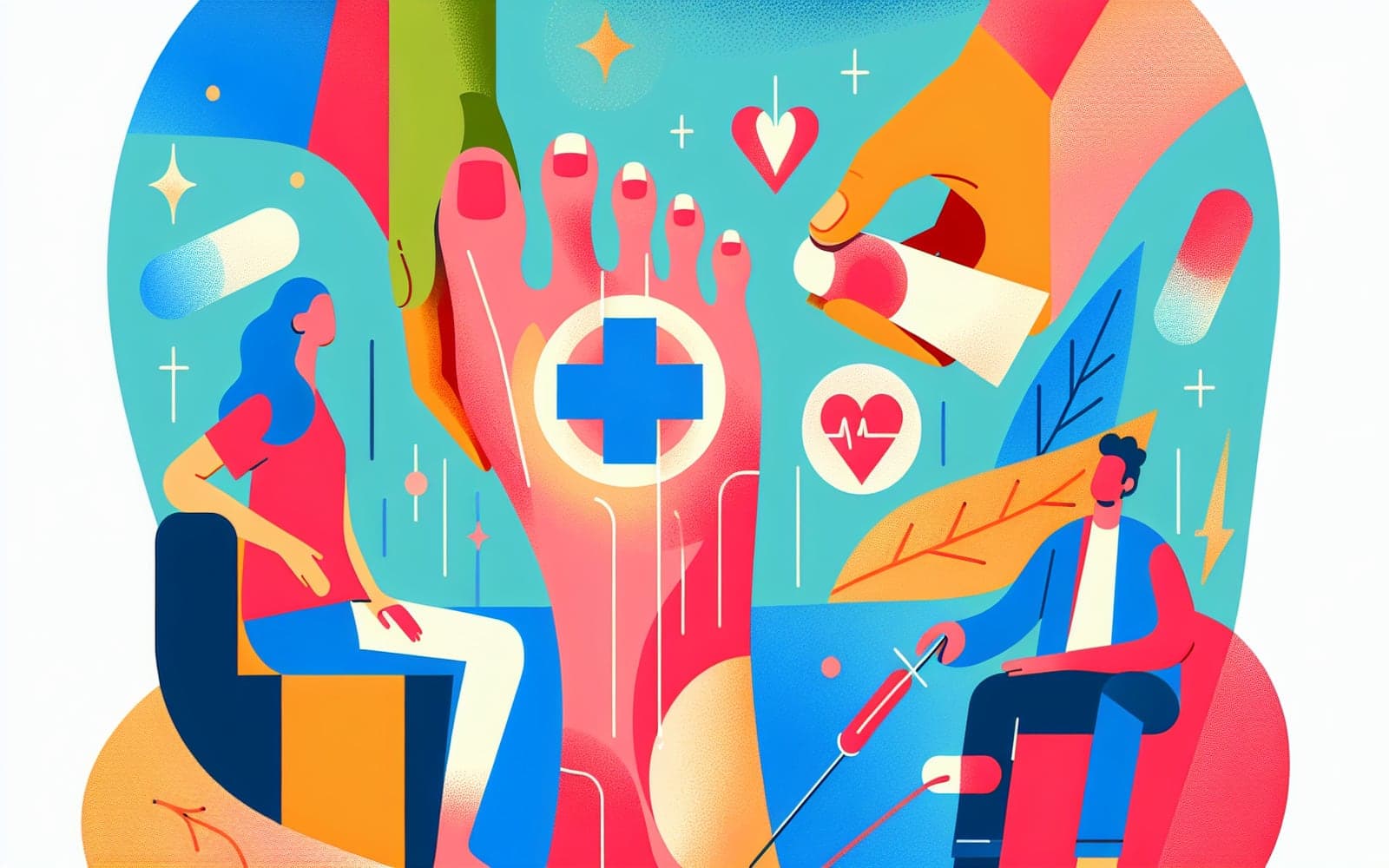Contents
-
Shoe Selection: Your First Line of Defense
-
Orthotics: Custom Support for Your Feet
-
Pain Relief: Managing Discomfort
-
Toe Spacers and Night Splints
Bunion Be Gone: 5 Non-Surgical Ways to Treat Your Painful Toe
Bunion Be Gone: 5 Non-Surgical Ways to Treat Your Painful Toe
Pain-Free Solutions
Living with a bunion doesn't always mean you need surgery. There are several non-surgical treatments that can help alleviate pain and slow the progression of this common foot deformity.
Contents
-
Shoe Selection: Your First Line of Defense
-
Orthotics: Custom Support for Your Feet
-
Pain Relief: Managing Discomfort
-
Toe Spacers and Night Splints
Shoe Selection: Your First Line of Defense
The right shoes can make a world of difference. Opt for footwear with a wide toe box and low heels. This gives your toes more room and reduces pressure on the bunion. Some shoe stores even offer stretching services to create extra space around the bunion area.
Orthotics: Custom Support for Your Feet
Orthotics, or special shoe inserts, can help redistribute pressure away from your bunion. They come in both over-the-counter and custom-made varieties. While more expensive, custom orthotics are tailored to your specific foot shape and can provide better support.
Pain Relief: Managing Discomfort
For pain relief, over-the-counter medications like ibuprofen or acetaminophen can help. Topical treatments, such as diclofenac gel, can be applied directly to the bunion area. Ice packs can also reduce pain and swelling, especially after a long day on your feet.
Toe Spacers and Night Splints
Toe spacers are small devices placed between your toes to help keep them aligned. Night splints, worn while sleeping, can help stretch the toe into a straighter position. While their long-term effectiveness is debated, some people find these devices provide temporary relief.
FAQs
Can bunion pads help?
Yes, they can provide cushioning and reduce friction.
Is physical therapy effective for bunions?
It can help improve flexibility and reduce pain.
How long do orthotics last?
Typically 1-5 years, depending on use and quality.
Can I treat my bunion at home?
Many treatments can be done at home, but consult a doctor first.
The Bottom Line
While these treatments can't cure a bunion, they can significantly reduce pain and slow its progression, potentially helping you avoid surgery.
Additional References
-
Commissioning guide: Painful deformed great toe in adults. Royal College of Surgeons of England, November 2017.
-
Hurn SE, Matthews BG, Munteanu SE, Menz HB. Effectiveness of Nonsurgical Interventions for Hallux Valgus: A Systematic Review and Meta-Analysis. Arthritis Care Res (Hoboken) 2022; 74:1676.
-
Kwan MY, Yick KL, Yip J, Tse CY. Hallux valgus orthosis characteristics and effectiveness: a systematic review with meta-analysis. BMJ Open 2021; 11:e047273.
This article has been reviewed for accuracy by one of the licensed medical doctors working for Doctronic.












